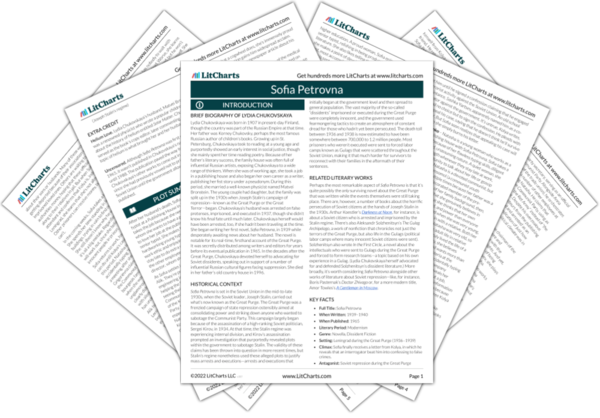The fact that Kolya signed a confession goes against Sofia’s unyielding belief that her son is innocent. And yet, it’s very unlikely that the confession legitimately reflects the truth, since many Soviet prisoners during the Great Purge were coerced into signing confessions to crimes they didn’t commit. Sofia, however, has not yet begun to question the government, so it wouldn’t occur to her that Kolya might have been tortured until he agreed to make a false confession.
